Glenn Carle: Well, let’s go from the, obviously, profoundly depressing subject for me so people don’t have to watch me fume and steam anymore, impotently, and turn to something which I find is a more hopeful topic, which is Germany’s Radical New Economic Policy, or the beginnings thereof, at least.
Atul Singh: Alright, so Germany. We’ve covered Germany in the previous edition, and we talked about the election. We told you how the CDU/CSU had emerged as the top dog. We told you about the rise of the far right and what has happened, as we predicted, which was almost inevitable because, obviously, the CDU/CSU combination, the Christian Democratic Union, wasn’t going to ally with Alternative for Deutschland, the Alliance for Germany. It will certainly steal some of the clothes, CDU will steal some of AfDs clothes. But the CDU has got into bed with the SPD yet again — they got into bed during Angela Merkel’s time. It’s not something new. They have an old marriage, they bicker, they spat, they break up and then they get back again. So hey-ho, there you go.
Debt reform and economic transformation
Atul Singh: The CDU/CSU bloc and the SPD have announced a preliminary deal to form a coalition on 8th March. Excellent. Both of them have put a debt reform plan which has won the battle of the Greens. This has gone through both houses of German parliament now. And they’ve said, “Look, we are going to exempt defense spending from the country’s constitutionally enshrined debt limit” — that’s known as the debt brake, this was a 2009 constitutional provision — “and we are going to create a special €500 billion fund (roughly $545 billion) for infrastructure development.” This €100 billion, which is $109 billion, will go to the Special Climate and Transformation Fund, which is the pet issue of the Greens. The Greens have already got nuclear energy out of Germany, for which they’ve paid a hefty electoral price, and now they get their pound of flesh to put this release of the debt brake in terms of greater investment in Climate and Economic Transformation. Now, note there are risks to this policy, because a lot of Germans think that this policy has imposed extraordinary costs and a lot of suffering on the German consumer, on the German worker, on German businesses. So the coalition, there are risks to it, as our colleague at Fair Observer, Alex Gloy, who’s a brilliant German economist whom you must read, has spoken about and will speak about at great length in the coming days. So roughly, let’s assume German GDP is around 4.5 trillion, okay? And right now, what we know is that German debt is historically lower, alright — compared to the southern Italians, definitely much lower. And if Germany boosts its debt by even a trillion, its debt–GDP ratio would still be lower than all other major Western economies. So there’s headroom, as many Germans have argued. And also, Friedrich Merz, the leader of the CDU/CSU bloc and the future chancellor, he has a background in corporate law, much more successful than mine — I left that world, I clearly wasn’t bright enough or diligent enough. So here I am partnering with Glenn Carle, and the two of us are trying to make sense of the world and sort of pushing through multi-billion-dollar or multi-trillion-dollar deals, which Friedrich Merz has. He’s gone from billion-dollar deals to trillion-dollar deals, I suppose.
Challenges and risks of the new policy
Atul Singh: And what he has done is he’s taken the view that, “Look, we can no longer rely on the export-oriented model alone. Why? We are living in an age of protectionism. Chinese demand has plummeted. Russian energy costs have soared. American protectionism has kicked in, it kicked in even under Joe Biden in the guise of the Inflation Reduction Act. Now under Trump, we have tariffs looming. So if we don’t stimulate domestic demand, what is our economic growth model?” In fact, Germany has stagnated for two years. And we haven’t even talked about Germany’s infamous red tape, which the previous chancellor, Olaf Scholz himself, talked about, and Glenn has mentioned many times, you need 200 permits to build something simple. Perhaps not 200, but you get the point — it’s ridiculous, it’s self-defeating, it’s a self-inflicted wound.
Investment in infrastructure and defense
Atul Singh: So we haven’t gotten into that, but here, Merz said, “Okay, we have to change the structure of the economy. We need structural change. How do we achieve that structural change?” Well, Germans are still going to save because Germany is an aging population, people fear for the future. People are not 25, but they’ll go out and get drunk and party and then go to a nightclub. A few may go to KitKatClub and the other posh clubs, or the other wonderful clubs of Berlin. But most people will lead prudent lives, and they are Protestants at the end of the day, culturally, even though Bavaria and Baden-Württemberg are certainly Catholic. Culturally, they are Protestants. It was Prussia that reunified Germany in 1867, first by beating Austria in 1871 — it completed that process by beating France, two Catholic nations. So culturally, Germany is Protestant; they are going to be prudent. So what do you do? Well, you need government expenditure. German infrastructure is no longer cutting-edge, is no longer leading, and it makes sense for Germany to refurbish its once-wanted infrastructure — so train stations, train tracks, cranes, roads, ports, bridges, the list could go on. Alright, so that’s one. Green Infrastructure, charging stations, perhaps funds to develop new battery technologies, all other clean energy alternatives such as wind power or solar — which in Germany doesn’t make sense, they don’t get that much sun. It makes sense where I’m sitting in Jaipur, Rajasthan, which is ridiculously sunny and on the edge of the desert to the west of here. But anyway, let’s invest in clean, green energy and move forward. And of course, what makes sense now, given the increasing Russian threat, is investment in defense. Going back to the times of Friedrich the Great. Germany is now back in some ways. As we know, NATO was established, as someone once quipped, to keep the Americans in, the Russians out and the Germans down. And now, of course, with Trump threatening to pull the US out of NATO or at least putting pressure on NATO; threatening to take Greenland away from Denmark, which is an ally; taking over Panama, that’s already done; maybe having Canada as the 51st state, or maybe 51st, 52nd, 53rd, whatever states and so on and so forth — Germany is having a bout of extreme nervousness. And Germany thinks, “Hang on a minute. We have a Trump-led US on one side and we have Vladimir Putin, a German-speaking former KGB colonel, very close, just after Poland, and so we should prepare.” So Germany has decided to invest in defense as well.
Potential long-term risks and political implications
Atul Singh: Now all this promise of investment in infrastructure and defense has boosted long-term yields because investors have priced in higher borrowing. On March 5, German yields jumped by 0.3 percentage points. This largest single-day rise in almost 30 years. Even the Euro surged, alright. Mind you, the dollar has dropped. The Euro has surged, that’s a new thing. So we have an export-oriented economy with a current account surplus that is nearly 3% of the GDP, an economy that exports capital now resorting to new fiscal laxity to spend more on defense and infrastructure. Some people are calling it the beginning of a new European growth model, because it shows that Germany is willing to take risks, finally. However, there are risks to this risk-taking. Let’s say if the Germans lose fiscal discipline, then what happens? Let’s say so many immigrants in Germany from conflict-ridden areas who do not come from Protestant background, they want more and more welfare, more and more boondoggles, and then politicians start promising them the boon. Then Germany could very easily turn to the Italian growth model, which is not much of a growth model, ladies and gentlemen. And of course, then the risk of AfD coming to power, just as Giorgia Meloni has come to power. And remember, Merz has broken his campaign promise: He said he wouldn’t release the debt brake, he said he wouldn’t increase spending. He promised, basically, a steady hand on the tiller. And instead, this corporate lawyer who is not terribly charismatic, in keeping with the German tradition of having dull leaders — they’ve still not forgotten Adolf Hitler, the ghost of Adolf dances in German nightmares every night. So this dull chap has taken a rather radical decision. And one of the big risks is that German voters are not in a mood to fight Russia. Neither the AfD, which got over 20.8% of the vote, if I remember correctly, and parties on the far left, one of which nearly got 5% of the vote, 4.97% of the vote. And if you add up the votes, well, most people voted for some kind of stability. There’s no mood amongst German voters to take on Russia. And if you have increased spending, then you have the risk of inflation, which is exacerbated by US President Donald Trump’s protectionism. And if the economy was eventually to turn south thanks to inflation, thanks to spending, thanks to loss of fiscal discipline, thanks to a new political populism, then this shedding of post-war German debt diversion — which will certainly boost animal spirits in Germany and in Europe in the short run and will create export opportunities for foreign firms, which can now sell more to Germany — it could lead to risks in the long-term and threaten the entire European economy. So yes, as of now, the relaxation of stringent borrowing laws will release a new burst of growth, but it has risks the coalition could collapse. It has risks of creating longer-term problems and it could presage the rise of the AfD which can say, “Look, none of the politicians you voted for kept their promise.” Over to you, Glenn.
Glenn’s perspective on Germany’s economic shifts
Glenn Carle: Well, someone said — I can’t remember who this sage was — that the “consistency is the hobgoblin of little minds.” And then, in keeping with today’s reverence — you’re my reverence today for John Maynard Keynes — he was asked one time why he had changed his position on a certain economic point, and he said, “I don’t know about you, sir, but when circumstances change, I change my mind. What about you?” So what’s changed, and why is Germany possibly at this significant turning point? The big change is what’s happened in Ukraine and what’s happened in the Oval Office, and thus to the American relationship with Europe. The structural problems that Germany has slowly not been able to address successfully is demographic of fewer workers per pensioner; cultural and demographic, again, with a need for workers and a dramatic increase in the number of immigrants to Germany in particular, as you alluded to, from a different civilization and religion, which creates social tensions. And then from Vladimir Putin’s consistent efforts, with continuing success over 20 years, to reconstitute the Russian Imperium in what Russians call the near abroad and we all call the central European states. So the leaders of Germany are struggling with all of these things and nothing, to quote another great mind, Samuel Johnson, who’s in the English language quoted more frequently than anything except for the Bible. Samuel Johnson said — I’m paraphrasing — “Nothing focuses the mind like the hangman’s noose.” And with Germany confronting conceivably, literally existential issues, but certainly civilization-changing tensions, there is a possibility that the German leaders, currently the chancellor, will be obliged to and able to rise to the occasion with fundamental shifts in tax structure, regulatory framework and allocation of resources. The €500 billion increase on defense can be very stimulatory if coupled with some regulatory issues, deregulation, it could be a historic moment that we are living. However, a lot of these problems have been known and German leaders have struggled to address them for decades already. I think the fundamental change is that there is just about to be 22%, I think it is, of a sovereign state immediately to the east of Germany being swallowed up by Eastern hordes. The historic fear of Germans and that that is combined with these structural, economic, social rigidities make it possible and obligatory for the German leaders to succeed. So it’s not at all one issue, but it has focused the mind and the German leaders seem to offer some real potential for historic change in the structure of Germany’s economy, society and thus of Europe, because Germany is the key to Europe.
[Lee Thompson-Kolar edited this piece.]
The views expressed in this article/video are the author’s own and do not necessarily reflect Fair Observer’s editorial policy.





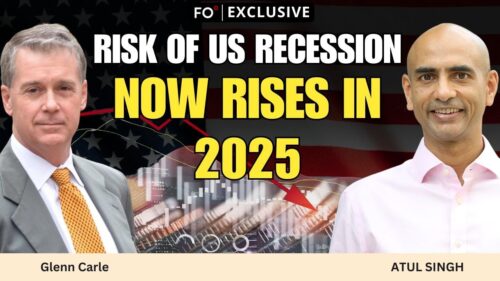
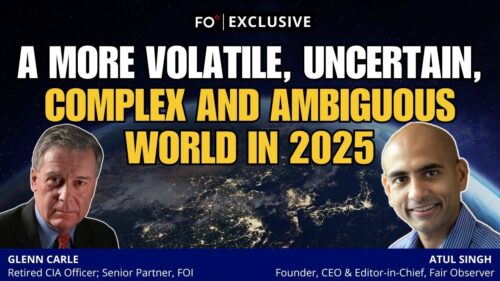
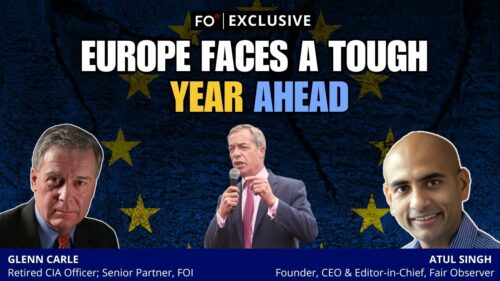
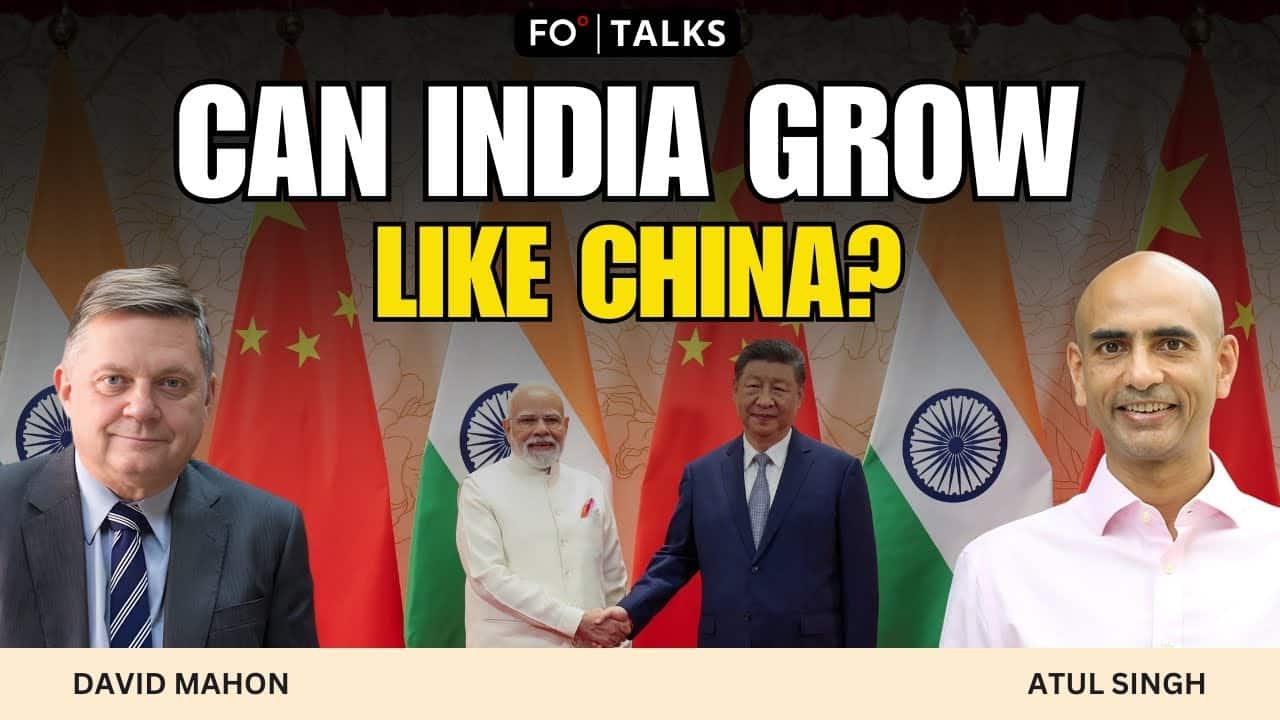

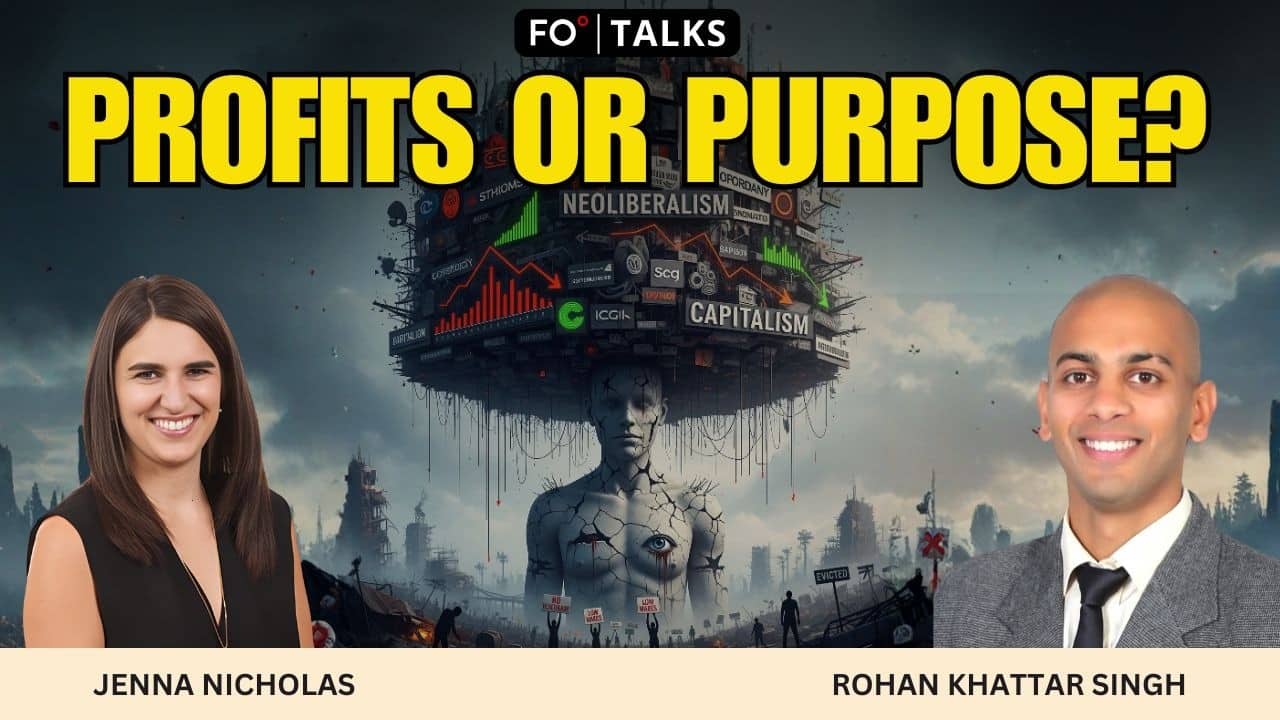

































Comment